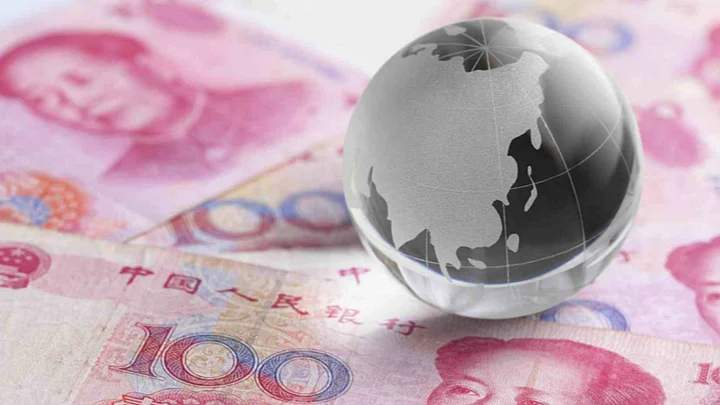On 26 March, China launched its long-awaited renminbi or yuan-denominated oil futures contract, leading many to conclude that the greenback’s death is imminent. While the petro-dollar has been in decline these past few years, it is not because of the hype surrounding the petro-yuan, but rather due to the US weaning off of foreign oil.
Since 2013, the US started producing more crude oil than it imported, thanks to offshore drilling and new technological advancements like horizontal drilling and hydraulic fracturing. As the US makes the transition to become a net energy exporter, it’s only natural that oil exporting countries turn their attention to the world’s biggest energy consumer – China.
By holding this distinction, China knows that it can compel those countries to accept oil payments in yuan rather than dollars. Countries such as Saudi Arabia – that live and breathe the oil market – can ill-afford to upset China.
However, the thought that the decline of the petro-dollar signals the beginning of the end of the dollar’s global dominance is mistaken.
China Doesn’t Have the Credibility of American Institutions
To provide some context, the birth of the petro-dollar can be traced back to the 1970s. The collapse of the gold-backed dollar standard established during the 1944 Bretton Woods arrangement presented a great threat to America’s global dominance, a position that it had enjoyed since the beginning of the Second World War. To continue its dominance, America needed the world to keep buying dollars.
It was concluded then that to preserve the value of the dollar, the US would make a deal with Saudi Arabia, then the world’s largest oil producer. President Richard Nixon decided that he would make an offer that the Saudis would not be able to refuse — if they agreed to use only the dollar for their oil sales and invest their revenues into US treasuries, the US will protect their oil fields and provide the kingdom with military support.
The US needed access to oil and counter Soviet influence in the region. The Saudis needed protection from the Israelis. It was the perfect deal.
Soon afterwards, all of the oil-producing countries in the Organisation of the Petroleum Exporting Countries (OPEC) wanted the same deal. And the US happily obliged.
But a few things have changed now — the Soviet Union collapsed; geopolitics of the Middle East has changed, and is still changing; falling oil prices are squeezing the OPEC nations, who now only produce less than a third of global oil, compared to 50 percent during their heydays of the 1970s; and the supply surge in US shale oil and gas has dramatically led to reduced reliance on imports.
As the US becomes less dependent on foreign oil, China has become more dependent as its rapid economic growth and expanding middle class have called for an unprecedented need for energy resources.
But unlike the US, it has no interest in offering an oil-for-security petro-yuan deal to Saudi Arabia. Also unlike the US, China’s financial and political institutions are not subject to the same credibility standards that guide American institutions.
From a historical perspective, the American economy has gone through a roller-coaster ride of 12 major recessions since the Great Depression of 1929, and has bounced back at different speeds each time. China’s economy – albeit suffering great damage during the Great Leap Forward and Cultural Revolution – hasn’t experienced a single recession since its opening in 1979. With financial fragility and slowdown trends amidst a potential US-China trade war, it remains to be seen if the Chinese economy can withstand its first shock.
Global Confidence in the Dollar is Not Just Pegged on Oil
The confidence in the dollar is also reflected in the vast holdings of US treasuries in central banks throughout the world. The dollar’s share of global foreign exchange reserves in the third quarter of 2017 stood at 63.5 percent, dwarfing that of the renminbi’s, which only made up 1.1 percent of the total.
Take, for instance, India – now the world’s fastest growing economy – has increased its holdings of US securities to $148.6 billion this past January, up from just $113.7 billion in January of 2017.
Moreover, the dollar accounted for nearly 90 percent of all international exchange transactions in 2016, whereas the renminbi constituted only 4 percent. And today, close to 65 percent of US bills in circulation are held outside the country.
All these numbers show that countries remain confident that the US has the economic power to pay off its debt regardless of financial conditions, and that they will continue to maintain their pegs, or stabilise the value of their currencies, to the dollar. The global confidence in the dollar, therefore, will not diminish simply because the US decides to buy less oil.
Unless China fully follows through on the much-needed and sweeping economic reforms, and minimises the reach of government prying of the economy – even if it manages to push for the usage of yuan for oil transactions, or for all other purposes for that matter – it will face a long, uphill battle if it wants the renminbi to share the same status as the dollar, let alone displace it.
(Tenzin Topden is a graduate of Stanford University, and recently interned at the Asia Society Policy Institute in New York. This is a personal blog and the views expressed above are the author's own. The Quint neither endorses nor is responsible for them.)
